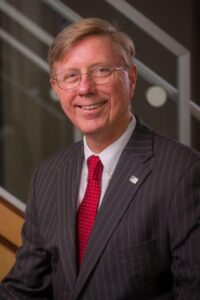Being a CEO can be an all-consuming job.
Executive Summary
Rick Parks, the former chief executive officer of Society Insurance, offered some reflections on preparing from retirement—both during the CEO’s tenure as leader, and in the days after handing the leadership baton to a successor.Parks originally published this article on LinkedIn. Carrier Management is republishing it with his permission.
No matter how well the organization is performing, there is always the sense of responsibility to stakeholders. CEOs are also granted a sort of “rock star” status in our society, no matter how small and humble the organization may be. It is easy to let the role define you.
But at some point, your time in the role comes to an end. For CEOs fortunate enough to pick the time and place, and who can also make their CEO tenure the last act of a professional career in an industry, I want to offer some advice on making the next phase of your life a rich and fulfilling time.
During the CEO Tenure
- Start the role with the end in mind. No matter how well you run the organization, or how long you are at the helm, at some point you will be gone. Build your team and a pool of potential successors from day one. When the time comes to go, knowing that the organization is in good hands and positioned to go on to even bigger and better things will allow you to focus on your best life in retirement.
- Don’t let the role define you completely. While there may be no true work-life balance for a CEO, keep a life outside the role and engage in things that excite a passion for you. Make time for family and friends. Keep up with hobbies and pastimes that bring you joy. Take care of self physically and mentally. A little can go a long way on this. These things will be your base of life after being a CEO.
- Ease out. If you are at highway speed and suddenly see an intersection in front of you, it’s a terrifying experience to come to an abrupt stop and decide on your next direction. Far better to appreciate the intersection is coming and to ease into it. You are still in control, and it’s easier to change drivers, both for you and the next in the role. Yes, you are paid to do the job, but you are also paid to assure the transition is successful. You owe this to the organization and to your successor.
After Retirement
There may be the rare CEO who simply wants to watch nature from their back porch in retirement, but most of us likely aspire to be more active than that. After all, we spent years in a very active and high-profile role. We also have much to give based on our experiences. What we give and how we give it will differ for everyone, but I’ll share what I’ve learned so far.
If you are at highway speed and suddenly see an intersection in front of you, it’s a terrifying experience to come to an abrupt stop and decide on your next direction.
- Take advantage of the opportunity to further enrich your relationship with family and friends. If you did the right thing and nurtured that during your CEO tenure, this is your chance to devote even more time to them. Go to that family reunion you’ve never been able to make. Reconnect with an old friend.
- Take time to reflect on what brings you fulfillment and joy. If you have already made a deep dive on this, good for you. If not, now is the time. You should devote as much attention to this as you did in building the strategy and culture of your organization. You’ve spent a lot of time planning for others. Now it’s time to plan for you.
- Don’t overcommit right away. You have been very busy and heavily scheduled in your CEO role. The temptation to simply move that over to another track is immense. My advice is simple: Don’t do it. The next challenge may look completely clear, but start slow and build if it is a great fit.
- Try something new. As a CEO you likely learned something new every day. That was part of the excitement of the role. Don’t lose that. George W. Bush took up painting after his Presidency and now it’s a passion for him. Trying new things is scary, but finding a new passion in retirement adds excitement to this phase of your life.
- Be grateful and generous. Especially in the corporate world, you were extremely fortunate to have been a CEO. Besides the diverse experiences you had, it’s possible you accumulated financial resources that few people ever see. Remember how lucky you’ve been and consider what helped you rise to the CEO office. Pay it forward.
My Retirement
I am new to retirement, but following the steps I’ve outlined here has led me to a promising start.
 Take time to reflect on what brings you fulfillment and joy.
Take time to reflect on what brings you fulfillment and joy.The CEO who succeeded me is an outstanding person and a great leader. She will clearly build on what I did in the role and take the company to a bigger and better place. I continue as a board member (but not as board chair), which allows an occasional view of the progress of the company.
Spending more time with family and friends has been a blessing. We will be going to that long-neglected family reunion and I am looking forward to that as much as if I had scored Super Bowl tickets. I have voluntarily gone shopping with my wife on multiple occasions, which is opening up an avenue of retail therapy that has eluded me.

About Rick Parks
Rick Parks is the retired CEO of Society Insurance, a 108-year-old property/casualty insurance company headquartered in Fond du Lac, Wisconsin.
He is a former Chair and Board Member of the Wisconsin Insurance Alliance and a former board member of the American Property Casualty Insurers Association. Parks also served for over 10 years as the Chair of the State of Wisconsin Property Casualty Advisory Council that coordinated with the Wisconsin Office of the Commissioner of Insurance on P/C insurance issues in the state. He was a long-time member of the Wisconsin Manufacturers and Commerce board, the state manufacturers association and state chamber of commerce.
In retirement, Parks is a part-time instructor in Risk Management & Insurance at Marian University of Wisconsin in Fond du Lac. He is also the principal of Rick Parks Consulting, a consultancy firm that advising the P/C insurance industry and business organizations in general.
I am actively involved in at least a few things that can be considered commitments, but they still allow me a freedom of time I did not have in the CEO role.
I’ve been blessed to be able to teach a class on Risk Management & Insurance at Marian University of Wisconsin, located in Fond du Lac where my former company is headquartered. This checks off multiple parts of my advice to retiring CEOs. It’s definitely something new, but it also allows me to give back to an industry that was so very good to me. My one class schedule doesn’t overburden me, but also gives some insight on how much more I can commit to while maintaining the flexibility one should have in retirement.
Teaching insurance in a university setting is new, but familiar ground. In the vein of trying something new that is also a little scary, I’ve jumped into the music ministry of the Catholic parish where I am a member. This happened prior to my retirement but was something I saw as potentially becoming a significant part of my post-retirement life. I was recruited to be a cantor during the later phases of the pandemic as many people were sticking close to home and cantors were in short supply. If you aren’t Catholic, the cantor leads the singing in the service, including Mass parts. You are definitely out there. In my parish attendance at Mass is in the hundreds. I did not read music when I started (and have only a scant capability now), so my learning curve was steeper than for most new cantors. It’s been very fulfilling to become at least competent. I’ve gone on to join the parish choir, where I’ve been thrown in the complexity of four-part harmony.
Beyond what I am doing at Marian University and at my church, I’ve tried to be mindful of opportunities to give back. I am the board chair of a large nonprofit, Forward Services Corporation, located in Madison, Wisc. Forward Services offers job training and job preparedness programs to adults and youth throughout Wisconsin. I had been involved with the organization for many years and worked with a great CEO who retired on the same day as me. As board chair I’m able to work with a new CEO, who will also take that organization on to bigger and better things.
My family has also set up a couple of charitable funds that are focused on providing scholarships to incoming college students who may need some help on getting started. My wife and I both benefited from scholarships to attend college, so we are paying that forward.





















 Machine Learning for Mutuals: What’s Working, What’s Not, and What’s Next
Machine Learning for Mutuals: What’s Working, What’s Not, and What’s Next  State Farm Mutual to Pay $5B Dividend to Auto Insurance Customers
State Farm Mutual to Pay $5B Dividend to Auto Insurance Customers  Reinsurance Program Could Wipe Out Need for Calif. FAIR Plan: Legal Exec
Reinsurance Program Could Wipe Out Need for Calif. FAIR Plan: Legal Exec  10 Do’s and Don’ts of a Smart ORSA Report
10 Do’s and Don’ts of a Smart ORSA Report 




